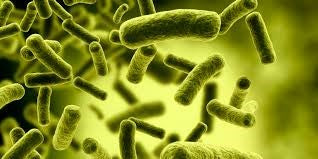What are Probiotics

Probiotics are living microorganisms that when administered in adequate amounts, contribute to the health of the host. The gut microbiota is a home to a diverse array of trillions of microbes, mainly bacteria, but also yeasts, viruses and protozoa (Foster et al., 2017). The microbial cells outnumber human cells and exist in a symbiotic relationship with the host. Evidence is starting to emerge supporting the efficacy of probiotics in the area of mental health (Foster et al., 2017).
Probiotics and Mental Health
Evidence is starting to emerge supporting the efficacy of probiotics in the area of mental health (Foster et al., 2017). A psychobiotic was recently defined as a live organism that, when ingested in adequate amounts, produces a mental health benefit (Dinan & Cudmore, 2013).
The gut microbiota has been implicated in a variety of stress-related conditions including anxiety, depression and irritable bowel syndrome. In the recent years, an increasing number of studies have reported that stress exposure early in life or in adulthood can change the organism’s microbiota composition, and that gut microflora can shape the organism’s stress responsiveness (Golubeva et al., 2015; De Palma et al., 2015; Bharwani et al., 2016).
Furthermore, studies have also demonstrated the importance of the gut microbiota in neurodevelopmental disorders related to disturbance of the central nervous system (Finegold, 2010; Desbonnet, 2013).
This is because the gut microbiota and the brain are in constant communication through the gut-brain axis (Foster et al., 2017). The gut-brain axis is a bidirectional link between the central nervous system (CNS) and the enteric nervous system (ENS) of the body. The microbes of the gut microbiota interact with the gut-brain axis through several pathways.

1. The Vagus Nerve (10th Cranial nerve)
The Vagus nerve plays a dominant role in the stimulation of gastric secretion. The basal or continuous secretion of gastric juice is almost entirely caused by tonic impulses in the Vagus nerve. Afferent spinal and vagal sensory neurons carry feedback from the intestinal end to the brain stem which in turn affects the hypothalamus and limbic system (responsible for regulation of emotions). Similarly, the limbic system (activated in stress) influences autonomic activity of the gut. A study done by Bravo et al. (2011) demonstrated that Lactobacillus rhamnosus administration can have a direct effect upon associated behavioural and psychological responses, in a manner that is dependent on the Vagus nerve.
2. Neuroendocrine (gut hormone) signalling
A number of biologically active peptides that regulate gut motility and secretion, emotions and stress resilience are present throughout the gut-brain axis. Bacterial by-products are known to stimulate enteroendocrine cells (EECs) in producing neuropeptides such as peptide YY, neuropeptide Y (NPY), cholecystokinin, glucagon-like peptide-1 and -2, and substance P (Foster et al., 2017). These neuropeptides, after passing through the bloodstream, can directly influence the enteric nervous system (ENS).
3. Interference with Tryptophan metabolism
Approximately 95% of Serotonin (5-HT) is produced by gut mucosal enterochromaffin (EC) cells. Serotonin [5-hydroxytryptamine (5-HT)] is a biogenic amine which acts as a neurotransmitter within the CNS and ENS. In the gut, 5-HT is involved in the regulation of GI secretion, motility (smooth muscle contraction and relaxation), and pain perception, whereas in the brain 5-HT is implicated in regulating mood and cognition. Gut microbiota regulates 5-HT biosynthesis in the gut by increasing the levels of tryptophan, a well-known precursor for serotonin production.
4.The Immune System
The central nervous system (CNS) and enteric nervous system (ENS) directly interact with the immune system. Moreover, the gut itself is an important immune organ that protects from externally derived pathogens. Gut associated lymphoid tissue comprises 70% of the body’s immune system and can be defined as the largest immune organ in the body (Foster et al., 2017).
Stress Conditions Associated With Disturbed Gut Microflora
One of the well-researched mechanisms that underlie a gut-brain link is the “leaky gut” syndrome. Chronic stress has been shown to alter intestinal permeability by translocation of gram-negative bacteria across the mucosal lining. This would lead to activation of an immune response which would result with an increased production of inflammatory cytokines that would lead to a low-grade inflammation which has been functionally linked to psychiatric disorders such as depression (Maes et al., 2009).
IBS is another condition that reflects pathologically altered gut-brain axis homeostasis. This disorder is associated with altered bowel movements, bloating and flatulence, and is strongly related to anxiety and depression. In fact, it is a multifactorial condition in which several factors are involved, including altered GI motility, visceral hypersensitivity, low-grade inflammation, anxiety and depression, and genetic and dietary factors (Chang & Talley, 2011).
The gut microbiota is an important factor that contributes to the pathophysiology of IBS (Hyland et al., 2014). Several studies have identified decreased levels of Lactobacillus and Bifidobacterium in IBS patients, and further demonstrated improvement of IBS symptoms after regular intake of probiotics, in individuals who were suffering from anxiety and depression (Nagel et al., 2016; Jeffery et al., 2012).
The supportive effect the probiotics have on IBS could be through the beneficial impact they have on nerve endings in the gut mucosa, or indirect pathways targeting mucosal and systemic immune activation, as well as neuronal sensitisation and activation. Many species of Lactobacillus and Bifidobacterium produce gamma-aminobutyric acid (GABA), the main inhibitory neurotransmitter in the brain that is significantly reduced in anxiety.
A study done by Bravo et al. (2011) demonstrated an ability of L. rhamnosus to alter the expression of GABA receptors and improve anxiety symptoms. The same study has also demonstrated an ability of L. rhamnosus to reduce the stress-induced levels of corticosterone (hormone elevated in stress).
In addition, Bifidobacterium and Enterococcus produce the neurotransmitter serotonin, an important biogenic amine involved in mood; and significantly lowered in the cases of depression. Desbonnet et al. (2008) found that consumption of probiotics increased plasma levels of serotonin’s precursor, tryptophan and decreased serotonin’s main metabolite 5-hydroxyindoleacetic acid (5-HIAA), similar to the antidepressant citalopram.
Consumption of probiotics was also shown to increase expression of brain-derived neurotrophic factor (BDNF), a growth factor crucial for brain plasticity, memory, and neuronal health that is abnormally reduced in patients suffering from depression (Wallace & Milev, 2017).
Bacteria also produce short-chain fatty acid (SCFAs), such as butyric acid, propionic acid and acetic acid, which are able to stimulate sympathetic nervous system, and thus influence the memory and learning processes in the brain. The impact of gut bacteria on cognition was demonstrated in numerous laboratory animal model studies.
In a study done by Neufeld et al. (2011), germ free animals have shown reduced anxiety like behaviour and increased hippocampal brain derived neurotrophic factor (a protein associated with neurogenesis).
Furthermore, in rodent models, a specific strain of Bifidobacterium longum was found to alter cognition, as well as stress related behaviour and physiology; and a similar profile of effects was subsequently observed in humans who were given the same strain (Allen et al., 2016).
Conclusion
Understanding how the brain and the gut microbiota interact at a functional level is likely to remain one of the great scientific challenges of the 21st century. Moreover, the emerging concept of a microbiome-brain-gut axis through which probiotics demonstrate positive influence on brain development, emotions and cognitive function suggests that modulation of the gut microflora could be an effective strategy for developing novel therapeutics for complex mental health disorders.
Reference
-
Allen, A.P., Hutch, W., Borre, Y. et al. (2016). Bifidobacterium longum 1714 as a translational psychobiotic: Modulation of stress, electrophysiology and neuro cognition in healthy volunteers. Translational Psychiatry. 6 (11), 93-99.
-
Bharwani, A., Mian, M.F., Foster, J.A. et al. (2016). Structural and functional consequences of chronic psychosocial stress on the microbiome and host. Psychoneuroendocrinology. 63 (16), 217-227.
-
Chang, J.Y., Talley, N.J. (2011). An update on irritable bowel syndrome: from diagnosis to emerging therapies. Curr. Opin. Gastroenterol. 27 (1), 72-78.
-
De Palma, G., Blennerhassett, P., Lu, J. et al. (2015). Microbiota and host determinants of behavioural phenotype in maternally separated mice. Nat. Commun. 6 (15), 673-735.
-
Desbonnet, L., Clarke, G., Shanahan, F. et al. (2013). Microbiota is essential for social development in the mouse. Molecular Psychiatry. 19 (13), 146-148.
-
Desbonnet, L., Garrett, L., Clarke, G. et al. (2008). The probiotic Bifidobacteria infantis: an assessment of potential antidepressant properties in the rat. J Psychiatr Res. 43 (2), 164–174.
-
Dinan, T., Cudmore, S. (2013). Probiotics for Mental Health and Wellbeing. Atlantia Food Clinical Trials. 3 (13), 10-23.
-
Finegold, S.M., Dowd, S.E., Gontcharova, V. et al. (2010). Pyrosequencing study of faecal microflora of autistic and control children. Anaerobe. 16 (10), 444-453.
-
Foster, J.A., Rinaman, L., Cryan, J.F. (2017). Stress & the gut brain axis: Regulation by the microbiome. Neurobiology of stress. 7 (17), 124-136.
-
Golubeva, A.V., Crampton, S., Desbonnet, L. et al. (2015). Prenatal stress induced alterations in major psychological systems correlate with gut microbiota composition in adulthood. Psychoneuroendocrinology. 60 (15), 58-74.
-
Hayland, N.P., Quigley, E.M. et al. (2014). Microbiota-host interactions in irritable bowel syndrome: epithelial barrier, immune regulation and brain-gut interactions. World Journal of Gastroenterology. 20 (14), 8859-8866.
-
Jefferey, I.B., Ohman, L. et al. (2012). An irritable bowel syndrome subtype defined by species specific alterations in faecal microbiota. Gut. 61 (12), 997-1006.
-
Nagel, R., Traub, R.J. et al. (2016). Comparison of faecal microbiota in Blastocystis- positive and Blastocystis-negative irritable bowel syndrome patients. Microbiome 4 (16), 44-47.
- Wallace, J.K., Milev, R. (2017). The effects of probiotics on depressive symptoms in humans: a systematic review. Annals of General Psychiatry. 7 (17), 16-18.
Any information or product suggested on this website is not intended to diagnose, treat, cure or prevent any medical condition. Never disregard medical advice or delay in seeking it because of something you have read on this website. Consult your primary healthcare physician before using any supplements or making any changes to your regime.




